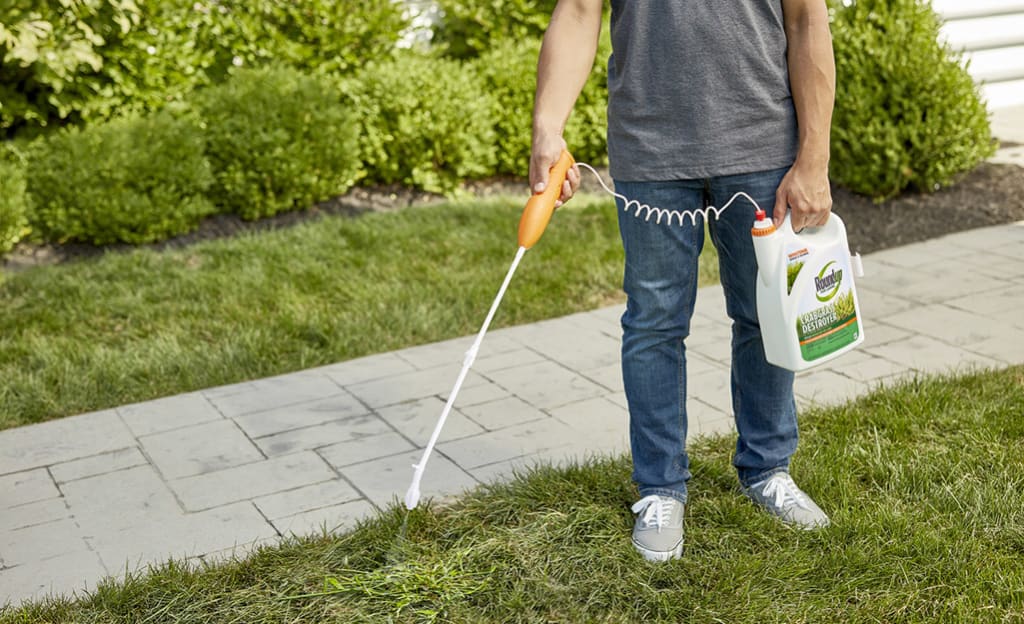Guide about Best Weed Killer for your Lawns
The Intricacies of Weed Killers: What You Need to Know

Weed killers, a type of herbicide, are potent solutions designed to eliminate the pesky invaders in your yard. Some of these chemical marvels not only eradicate existing weeds but also thwart the emergence of new, unwanted plants. While you could manually yank weeds out by the root or scorch them with a torch weed burner, these labor-intensive methods often pale in comparison to the efficiency of chemical herbicides.
Emerging in the late 19th century, early weed killers have since evolved significantly. However, with advancements come concerns. The Environmental Protection Agency (EPA) meticulously regulates these products due to their potential health and environmental impacts. It's crucial to scrutinize the labels on weed killers before purchasing to ensure proper usage. Misusing a weed killer or transferring it to another container can be hazardous. Weed killer is also know as Desherbant puissant in french.
Varieties of Weed Killers
A plethora of weed killer types exist, each catering to different needs and environments. Your choice should be informed by your lawn's specific conditions and your gardening goals.
Residual Weed Killer
Known as pre-emergence weed killers, residual variants delve deep into the soil, striking weeds at their root and preventing their resurgence. The downside? These soil-acting herbicides are non-discriminatory, poisoning all vegetation they encounter, including grass and flowers. Therefore, they are best suited for small, isolated areas away from desired greenery. For instance, they are effective for weeds sprouting in driveway cracks. Due to their high toxicity, residual weed killers are less favored for residential use.
Contact Weed Killer
Contact weed killers offer precision, targeting specific weeds without disturbing the root systems. They are ideal for annual weeds like crabgrass, chickweed, and nettle, which don't regrow the following season. By focusing solely on the weed, contact herbicides allow for selective eradication, making them a go-to for gardeners seeking minimal disruption.
Systemic Weed Killer
For perennial weeds such as dandelions, poison ivy, and ragweed that reappear annually, systemic weed killers are the solution. These herbicides penetrate the weed and travel down to the roots, ensuring complete eradication without contaminating the soil. The systemic approach involves spraying the living weed, allowing the herbicide to work its way internally to the root, ultimately killing the entire plant.
Selective Weed Killer
If your goal is to preserve the greenery while eliminating specific weeds, selective Tidex weed killers are your ally. These herbicides target only certain types of weeds, like dandelions, leaving the surrounding grass unscathed. This selectivity makes them ideal for maintaining a lush, weed-free lawn.
Non-Selective Weed Killer
For those looking to clear everything and start afresh, non-selective weed killers are the answer. These powerful herbicides indiscriminately kill or severely damage all plants they contact. Caution is paramount when using non-selective weed killers. Avoid spraying on windy days, refrain from walking on treated areas immediately, and shield any plants you wish to preserve.
Key Considerations When Choosing Weed Killers
With an array of weed killers at your disposal, it's prudent to weigh various factors beyond merely the type of weed you aim to eradicate.
Safety for Kids and Pets
If your yard is frequented by children or pets, it's imperative to scrutinize weed killer labels meticulously. The EPA's "Safer Product" label can guide you to options with minimal risks. A golden rule: steer clear of products marked with "poison" or "danger." After applying the herbicide, ensure it permeates the soil—either by using a sprinkler or waiting for rainfall—before allowing your little ones or furry friends back into the area.
Long-Term Plans for the Space
Contemplate your future vision for the treated area. If you're considering a weed killer with enduring effects, such as a residual herbicide, be mindful of your long-term landscaping plans. Residual weed killers impact the soil, so if you ever plan to introduce a garden bed in that spot, it's wise to reconsider using such a product. Planning ahead can save you from future gardening dilemmas.
In conclusion, understanding the nuances and applications of various weed killers can significantly enhance your gardening experience. By selecting the right herbicide for your specific needs, you can effectively manage your yard's weed problems while maintaining a healthy and vibrant garden.
About the Creator
Enjoyed the story? Support the Creator.
Subscribe for free to receive all their stories in your feed. You could also pledge your support or give them a one-off tip, letting them know you appreciate their work.





Comments
There are no comments for this story
Be the first to respond and start the conversation.